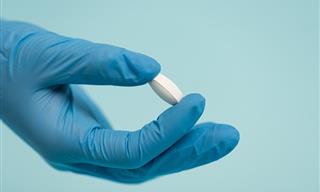I used to suffer from weak, brittle, splitting toenails. The problem didn’t occur in my fingernails, so I figured the root cause couldn't possibly be in my diet. I’m a big believer in alternative and Eastern medicine, so I embarked on a search to find out which essential oil could help. Several different resources pointed to frankincense. Until then, I knew it was a biblical or somewhat spiritual essential oil, as it is mentioned in both the Old and the New Testaments. As I researched further, I was delighted to find the many health benefits of frankincense essential oil.
Unlike many essential oils, frankincense has a low toxicity rate and is safe to use undiluted on the skin even for those pregnant and breastfeeding. It can be used topically on the sensitive skin of an infant, and you can even ingest it! Let's see all the scientific backing for this incredible ancient medicine.
What is Frankincense?
Frankincense essential oil comes from the olibanum tree (the Boswellia genus). It is the resin of trees native to Somalia, India, and certain regions of Pakistan. These trees can grow with very little soil, in dry, desolate conditions.
The word 'frankincense' derives from the old French term franc encens, meaning “high-quality incense.“ The word franc meant "noble," or "pure." It smells like a combination of pine, lemon, and woody, earthy scents. If you ever sniffed it straight from the bottle, you may have noticed that, much like mint essential oil, frankincense can help you focus and refresh your mind from a state of brain fog.
Research-Based Health Benefits
1. Mental well-being
Much like most other essential oils, the concentrated scents of the earth will bring you calm and help relieve anxiety, especially when used ceremonially. For frankincense, this benefit was scientifically proven: the chemical compounds in frankincense, called incensole and incensole acetate, “have shown anti-inflammatory and anti-depression activities due to their ability to activate ion channels in the brain to alleviate anxiety or depression.“
2. Immune strengthening
A study conducted at Mansoura University in Egypt found that “biologically, the oil exhibited a strong immunostimulant activity.“
Another study demonstrated the benefits of frankincense in treating gingivitis: “Frankincense, a safe and low-cost herbal medicine, may be feasibly applied to improve inflammation-based disease of gingival as an adjunct to the conventional mechanical therapy”.
Frankincense has also been shown to reduce inflammation in conditions like rheumatism, ulcerative colitis, irritable bowel syndrome, bronchitis, and sinusitis. Inhalation of frankincense has been shown to relieve respiratory inflammation and asthma.
3. Cancer-fighting properties
Boswellic acids, the chemical compounds found in frankincense, have an anti-proliferative effect on tumors. They inhibit the spread of tumor cells of leukemia, prostate cancer, breast cancer, skin cancer, and pancreatic cancer. Another study found that “frankincense essential oil elicited selective cancer cell death.“ Boswellic acids have also been found to relieve severe cancer therapy symptoms.
4. Maternity and fertility
Clinical herbalist Stephanie McBride says that frankincense “is thought to facilitate postpartum physiological changes for infants […] It is very beneficial in helping new mothers avoid postpartum blues.“ She adds that frankincense diluted in a carrier oil for massages can tone and strengthen the uterus, is safe for pre-and post-partum perineum massage, relieves perineum tears or hemorrhoids, and can even treat and prevent stretch marks, as well as cesarean scars. It is safe for hormonal rashes, even for babies.
In terms of fetus development, one study found that when given frankincense orally throughout pregnancy, the matured offspring of mice were better at learning processes, short-term memory, and long-term memory.
As for male fertility, frankincense taken orally has been shown to increase sperm motility and density in animal studies.
5. Digestion
A 2017 study states rather clearly that frankincense essential oil “is effective in eliminating IBS symptoms and its related depression and anxiety.“ Another study published a year later found frankincense "to be effective and safe in improving signs and symptoms in IBS subjects who are otherwise healthy, particularly in comparison with symptomatic drug treatment that may cause side effects.“
As mentioned briefly before, frankincense is also beneficial for colitis. A 2014 study has shown anti-inflammatory and antioxidant properties for colitis. Another German study has found promising results in patients with chronic colitis, ulcerative colitis, and Crohn’s disease.
How to use it at home
To use frankincense essential oil topically, you can add a few drops to your bath or dilute it in a carrier oil for a massage. You can also apply it undiluted to your nails - you'll find it's very rich and nourishing.
Frankincense essential oil can also be used as a household cleaner thanks to its antiseptic properties. You can diffuse it in your living space to clear and deodorize the air.
To take it orally, two drops of pure essential oil in 1 tablespoon of honey or one cup of water will bring gastrointestinal relief.
Any form of inhalation will help with cold and flu symptoms. You can also rub your chest with a mixture of frankincense and carrier oil/butter.
Sources: 1, 2.
 Go to BabaMail
Go to BabaMail































